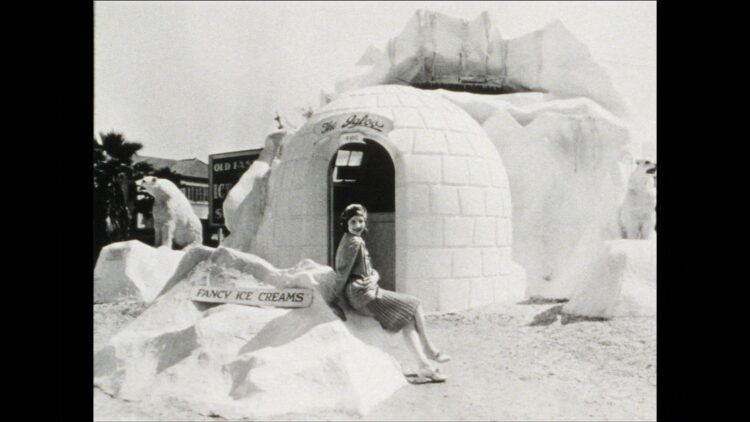
Damaged is a portrait of an indecisive man related in eighteen decisive moments. A series of still pictures offer models of childhood, sexuality and adulthood, while a voice-over makes the drive run smooth.
“A retrospective based on an introspective vision, this stream of still pictures, unfolding to the rhythm of the voice-over (delivered by Steve Reinke), portrays a man who visually exposes his psychological “faults.” Recounting eighteen decisive moments in his life, and dissecting both his genetic and cultural heritage, the work delimits a transitory space in which each image crystallizes one of these indistinct marking points. Bringing together a number of collectively shared experiences, Damaged presents a series of significant events — some pleasant, others less so — evincing the complexity of the stages of life and offering models of childhood, sexuality and adulthood that denounce the transmission and acculturation of stigmatized identities.” (Karl-Gilbert Murray, FIFA Catalogue)
“As an appetizer we begin with a delightfully accessible film called Damaged. Composed of a series of archival photographs (popular images) handpicked to draft an anecdotal biography of a narrator, this short work of eight minutes crystallizes all the genius of the director who manages to pour pop culture effortlessly between the subject of the film and the audience, turning individual experience into common understanding. Miraculously managing to match the right images with the right words under the sign of an astute and friendly humor, Hoolboom creates a truly communal experience, here is the biography of every and anyone ready to succumb to an unbearable nostalgia of the moment.” (Desperate Desires at the Centre of the Margins by Olivier Thibodeau, Panorama Cinema)
This type of biography is modeled after family albums where spontaneously produced, chronologically presented pictures are used as memory/storytelling cues. In the absence of motion, photographs present a radically incomplete version/vision of the past, the frame is temporal as well as spatial, cutting away the succession of events or pretexts which underlie the surviving evidence. The photograph never tells 'the whole story,' offering summary fragments in its place.
Damage's protagonist is unnamed, and is unusually reliant on those around him for cues as to what his personality consists of. The photographs presented, as well as the people they depict (primarily the triad: mother, sister, wife) offer models of personality which he inhabits.
Underlying the stories which accompany these pictures (narrated by the protagonist) is this simple premise: what if he has no personality? What if there is no there, there? In Gao Xingjian's Lingshan, the author has a debate with his editor, who insists, "fiction isn't painting, it is art in language. Do you really think the petulant exchanges between these pronouns (I, he, she, you) can replace the creation of the personalities of the characters?" To which the author replies: "He says he doesn't want to create the personalities of the characters, and what's more he doesn't know if he himself has a personality."
Is personality another kind of media (like film, or drugs) through which humans interact? If the 'I' of personality is a frame which mediates images of the self and the world, could that 'I' be re-formed through steady exposure to alternative media/frames? Is it possible to live without personality?
Rental and Sales
Single Screening Rental | $140.00 |
Educational Purchase DVD (Bluray +$15) | $260.00 |
5 Year Educational Streaming License, Digital File with DVD Circulation Copy | $550.00 |
Gallery Exhibition and Installation, complete Media Request form for quote | |
Institutional Archival Acquisition, complete Media Request form for quote |
Curators and programmers, please contact distribution@vtape.org to receive a login and password to preview Vtape titles online.
Screening and exhibition rentals and archival acquisitions include public performance rights; educational purchases or licenses include rights for classroom screenings and library circulation. When placing an order the customer agrees to our general online terms and conditions. Payment (or a purchase order number) and a signed licensing agreement must be received before media can be shipped to the client.
